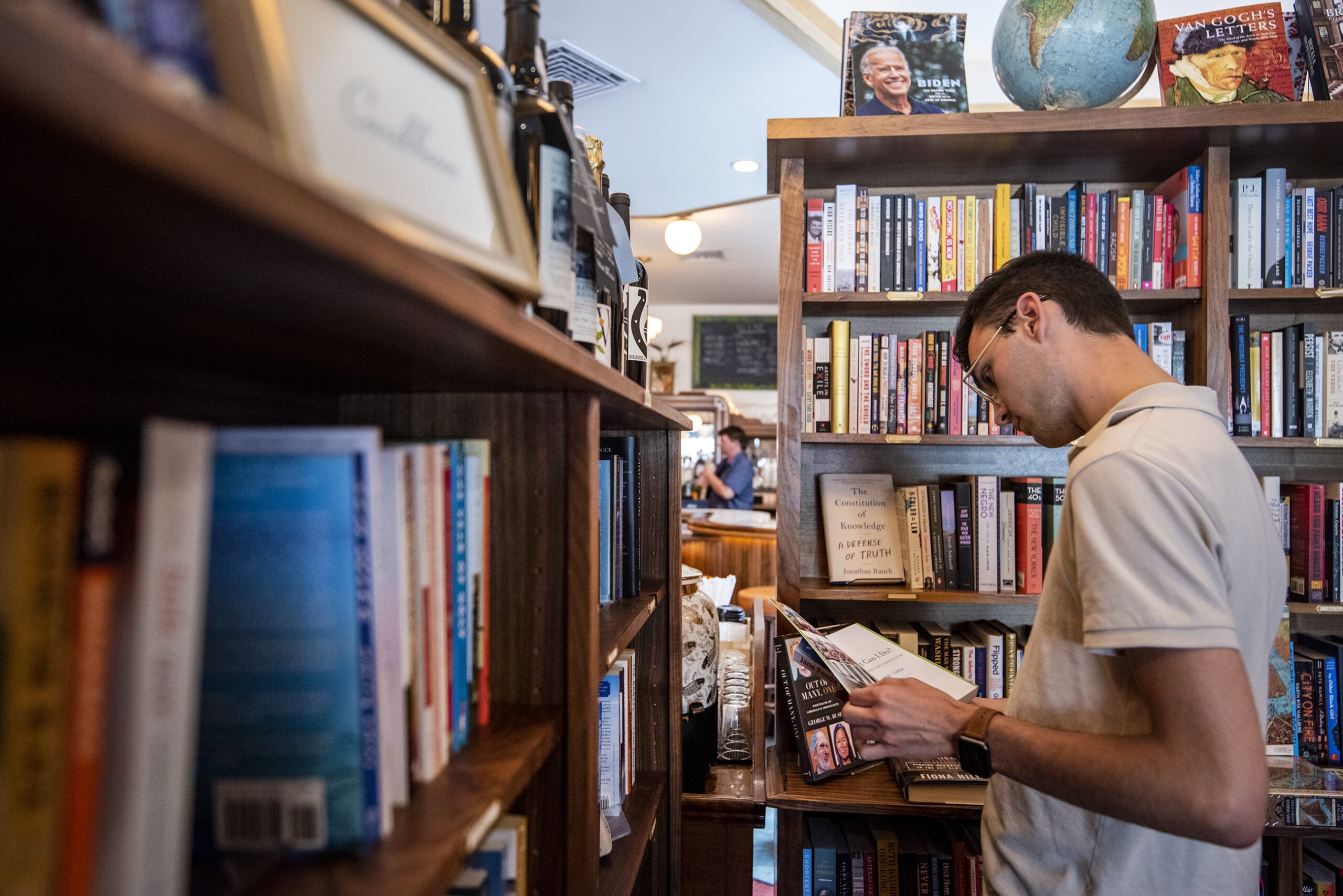When Lyn Ciurro and their business partners opened Bound to Happen Books in Stevens Point in 2021, it seemed like a risky prospect to invest in a new brick-and-mortar store.
Supply chains were still feeling the disruptions of the COVID-19 pandemic, but Ciurro told WPR’s “Wisconsin Today” it ended up being surprisingly good timing.
“People were trying to find ways to reignite their communities and to make these connections again, and bookstores were the place that people flocked to,” they said. “Honestly, it was kind of a renaissance for independent bookstores.”
Stay informed on the latest news
Sign up for WPR’s email newsletter.
Indeed, indie bookstores are making a comeback. The American Booksellers Association has reported yearly growth in membership for the past several years, with more than 200 new bookstores opening every year for three consecutive years starting in 2021.
Despite this flourishing, there is an “elephant in the room” for local bookshops: Amazon, which is the largest bookseller in the world and continues to dominate U.S. book sales. Independent bookstores have long been at the forefront of efforts to fight back against Amazon’s outsize corporate power.
Now, Amazon boycotts are gaining more widespread attention as some people seek ways to protest the growing influence of billionaires in government and public life.
One popular grassroots campaign online has been encouraging people to use economic protest to voice concerns about rising corporate power through a series of widespread boycotts against major companies, including Amazon, and several “economic blackout” days of no spending.
Stacy Mitchell is co-director of the Institute for Local Self-Reliance and an antitrust policy advocate who has written extensively about Amazon. She told “Wisconsin Today” that Americans have reached a “breaking point” with companies exerting political influence through intense lobbying and massive donations, especially under the new administration of President Donald Trump.
“I think there’s a lot of very widespread outrage about the extraordinary power that a small number of companies, especially big tech companies, have amassed, and the ways in which they have been insinuating that power into government,” she said.
Some small businesses in Wisconsin see this moment of rising economic protest as an opportunity to promote a “shop local” message and have participated in their own way. The owners of Bound to Happen Books encouraged people on social media to take part in a recent spending blackout day, “even if that includes us.”
Ciurro said their intention in supporting the boycott was to rally the community around a shared cause. From the beginning, the bookstore has positioned itself as a civic hub in Stevens Point.
“We always started with the intention of providing a community space and making sure that we really highlighted and emphasized the stories, authors and experiences that aren’t well-represented in our region,” Ciurro said.
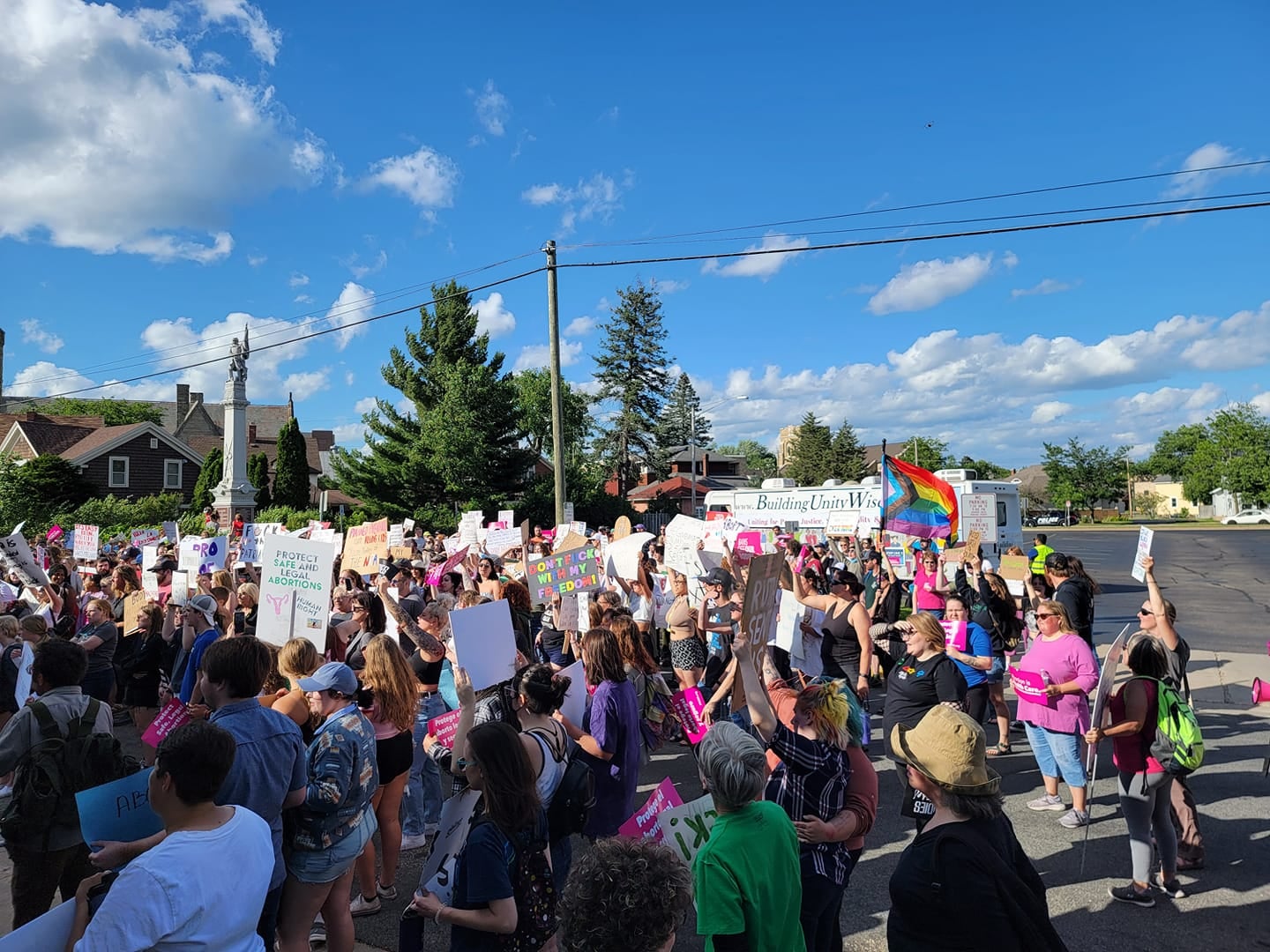
The bookstore hosts authors and other experts for discussions on current affairs and opens their doors for community organizing meetings. To protest the overturning of Roe v. Wade in 2022, the bookstore helped to organize a demonstration in downtown Stevens Point. More recently, the store owners have been partnering with students at the University of Wisconsin-Stevens Point to get a sanctuary movement going on campus.
Ciurro believes people are drawn to “centers of information” like libraries and bookstores when they are “looking for answers” or could simply use a friendly interaction or personalized reading recommendation.
“You can buy stuff while you’re sitting on your couch or whatever, but you’re basically just talking to an algorithm,” they said. “But when you come into our bookstore — really, any indie bookstore — you have a face there. You have somebody you can connect with.”
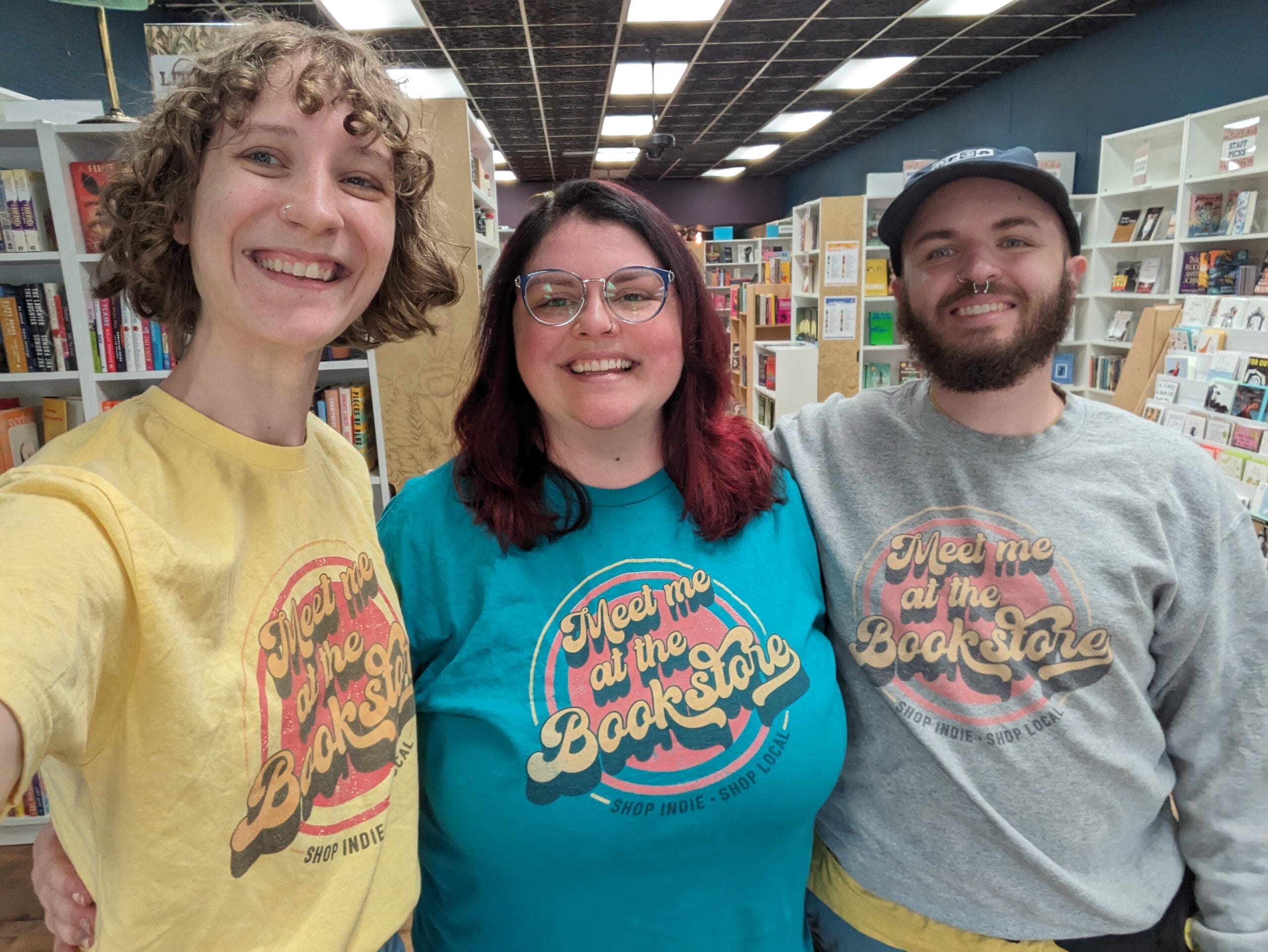
A haven for books and people
CJ Arthur is the owner of WordHaven BookHouse in Sheboygan. They told “Wisconsin Today” they have noticed an uptick in customers talking about making the switch away from big-box retailers.
“People are wanting to support Amazon less and less, and wanting to support indie bookshops,” they said.
Arthur opened WordHaven, a bookstore and writing center, in 2022 after moving to the area and noticing a lack of places to buy books outside of a used bookstore and a Christian gift shop. Their vision was to create “a place where people can reflect and grow and connect to themselves and to others.”
For Arthur, that starts with carefully curating what gets stocked on the shelves to include a wide range of authors, genres and stories.
“I want to make sure that anyone who walks in here can find themselves in a book,” they said.
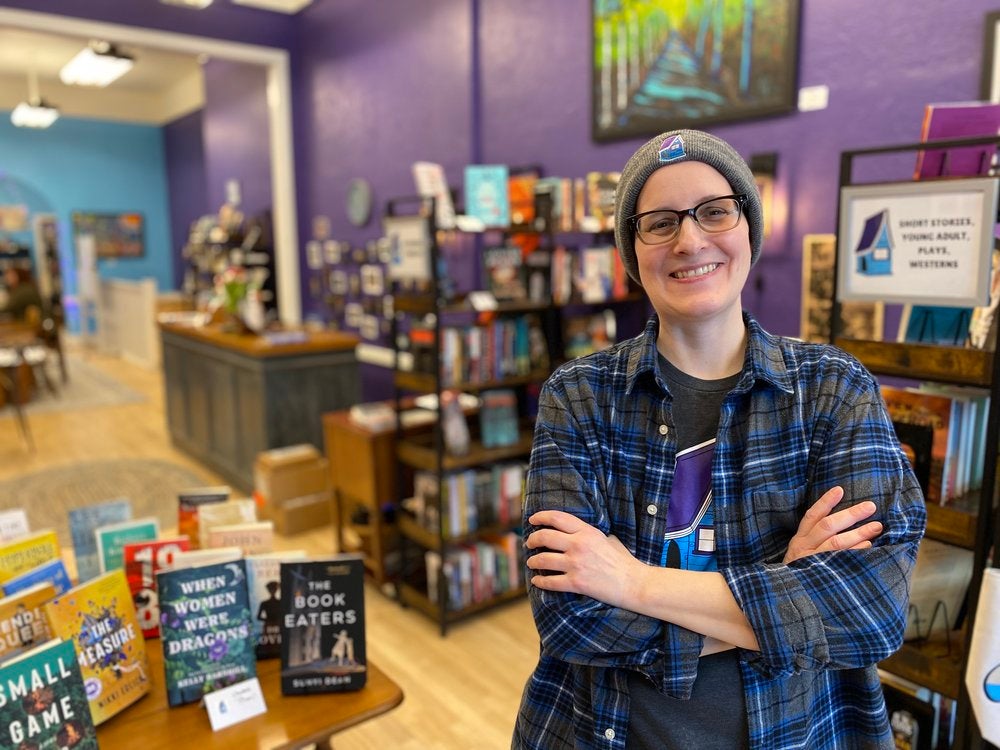
Arthur, who came to bookselling with a background in education and social services, has invested in making WordHaven a welcoming and inclusive space for community members as well. Comfortable seating is available to anyone, whether or not they make a purchase, along with free tea and coffee. A 14-seat farm table at the center of the store offers a place for people to hang out and read, write or have a conversation. Shop pups Roo and Daphne roam the store, providing a kind of “animal therapy.”
“I know we’re just a little bookshop in Sheboygan, but it’s beyond that, too,” Arthur said.

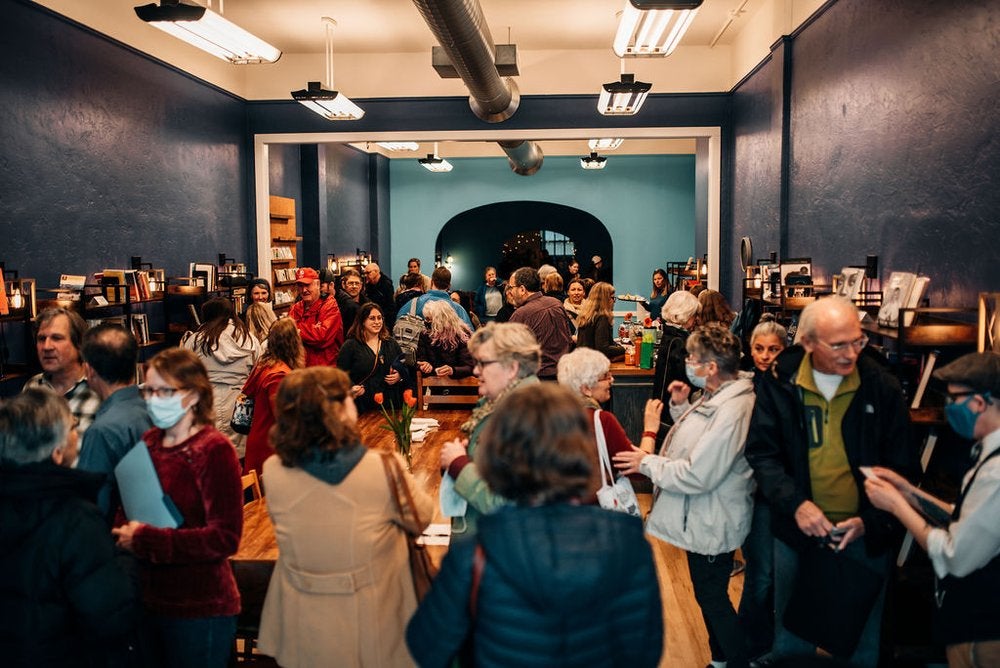
Arthur sees bookstores as being at the forefront of multiple hot-button political issues, including a surge in book bans around the country.
“We’ve been part of this fight for a while,” they said. “We have tote bags that say ‘Bookstores save democracy,’ and I think that’s true.”
To boycott or not?
When it comes to reining in corporate power, antitrust policy advocate Stacy Mitchell pointed out it’s important to be clear-eyed about the limitations of voting with your dollar and focus instead on supporting policies that regulate big companies.
“We are far more powerful when we use our citizenship muscle to try to influence what’s happening,” she said.
While boycotts won’t likely be the thing that ultimately topples Amazon, switching to shopping locally has positive ripple effects.
“There’s evidence that having strong local businesses is really good for the health of your economy, but also for your community,” Mitchell said. “It brings people together and supports the civic fabric of the place that you live.”
For both Ciurro and Arthur, serving this community role is a key element of running a bookstore — and they believe it has become all the more important in the current political moment.
“Local businesses, independent stores, need to realize that they are just as much of a target as anyone else is right now,” Ciurro said. “If they want to survive, if they want to see their community thrive, then they need to get involved, and they need to do it quick.”
This year, Independent Bookstore Day takes place on April 26.



